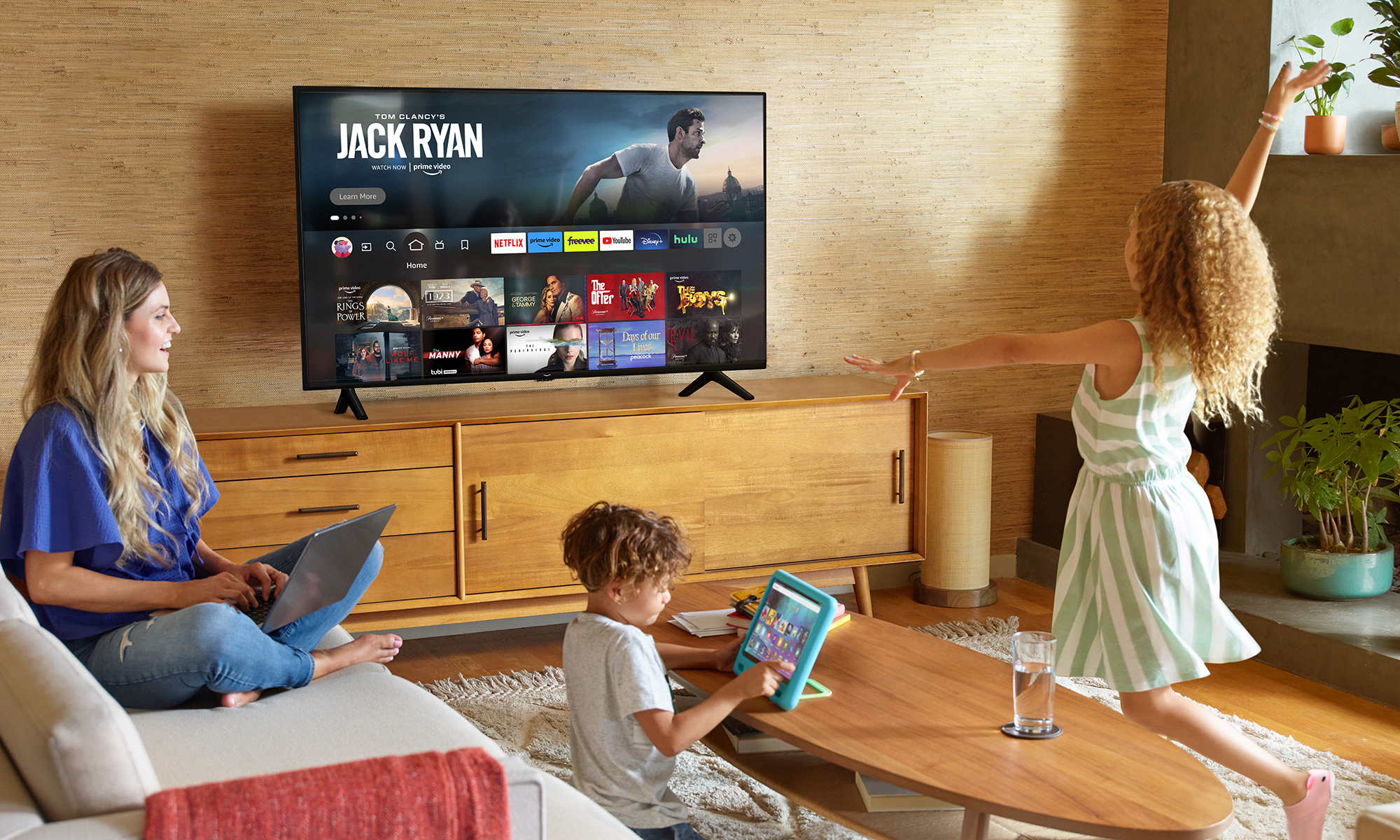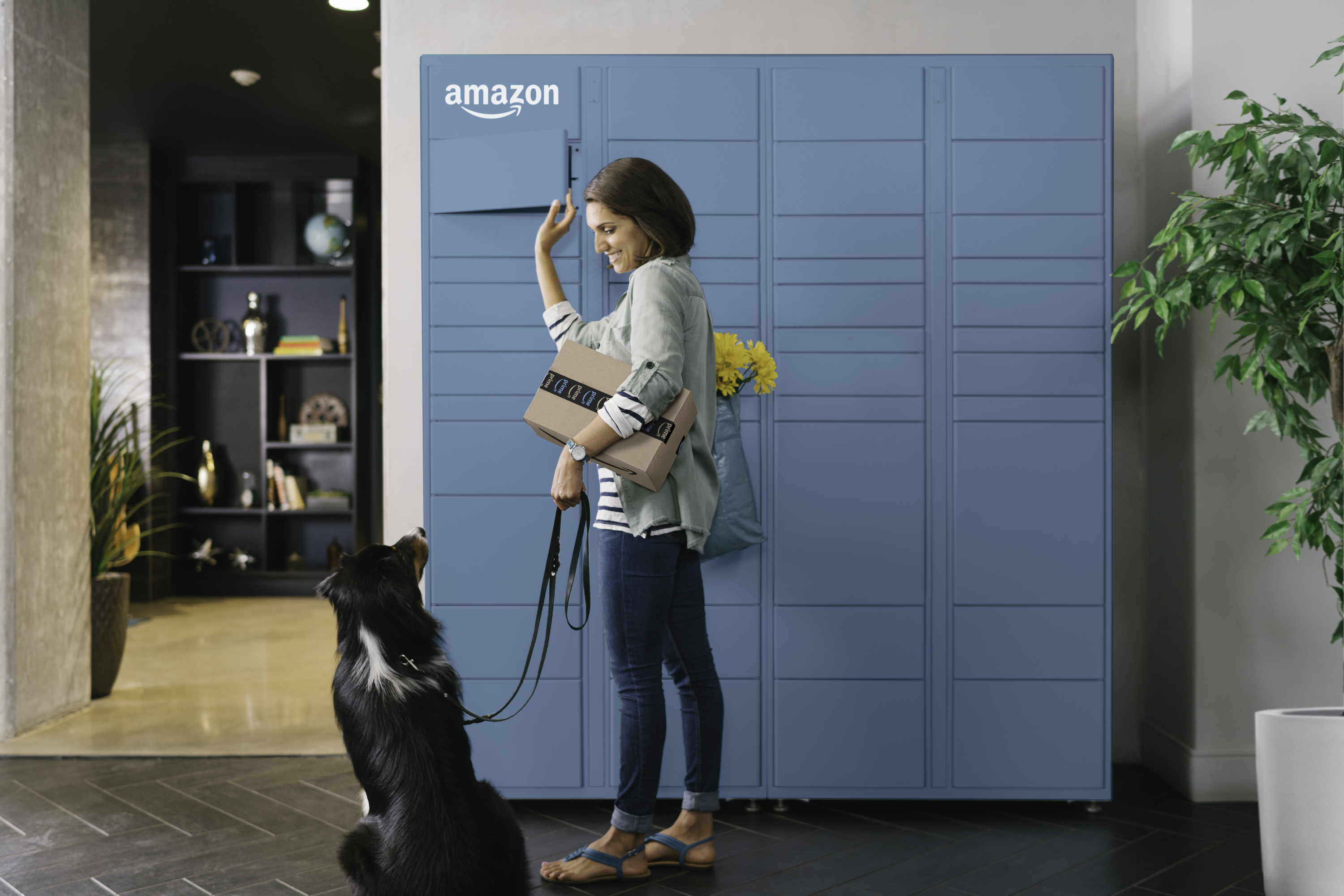Shares of AMC Entertainment (AMC 1.38%) soared 30% on Monday after a Daily Mail report indicated that Amazon AMZN 0.60% was potentially interested in buying the world's largest movie theater chain. Sources claim that the two parties have had preliminary talks about an Amazon takeover, but they do not know if discussions are still active or will bear fruit. Hollywood tracker Deadline would go on to say that its sources claim that there are no active talks between the two parties.
Amazon was reportedly in talks to acquire Landmark Theatres in 2018, so it's not outlandish to think of the leading e-tailer making a play for a multiplex operator. After the $13.7 billion deal for Whole Foods Market in 2017, it may seem as if anything is possible for Amazon. However, let's go over some of the reasons why this isn't likely to pan out -- wrapping this up with a big reason why it might happen.

Image source: AMC Entertainment.
1. AMC is not Landmark
If Amazon wanted to seriously get into the multiplex market, it's logical to think that it would start with the largest player, however that wasn't what it reportedly tried to do two years ago when it was outbid for Landmark.
Amazon didn't go for the largest multiplex operators at the time. It didn't hit up AMC or Regal's parent company on bended knee. Amazon CEO Jeff Bezos went for a high-end player with a strong brand and a limited footprint of 53 theaters across the country. It obviously did the same thing in wooing Whole Foods instead of trying to gobble up Kroger or Albertsons. It would make more sense for Amazon to go after an Alamo Drafthouse or Studio Movie Grill than to join forces with AMC.
2. Market cap is not enterprise value
With AMC stock having shed more than half of its value over the past year even after Monday's surge it may seem like it's a bargain right now. Why wouldn't Amazon pay half as much now as it would have paid a year ago for AMC? Well, that's not a fair description of the value here.
AMC is a highly leveraged company. It may command a market cap of $554 million right now, but it has a net debt position north of $10 billion. AMC's enterprise value -- the cost of acquiring the actual business since it tacks on debt and subtracts cash from the market cap -- is more than $10.6 billion right now. The stock price is irrelevant. It's a rounding error. AMC's stock can double from here and the value of the deal only goes up from $10.6 billion to less than $11.2 billion. Put another sobering way, AMC stock can drop to $0.01 and Amazon would still be on the hook for the $10.1 billion in net debt. There is no "buy low" urgency here.
3. AMC would be cheaper after a bankruptcy filing
If the real price to buy AMC is taking on its more than $10 billion in debt, wouldn't it behoove a potential buyer to wait for what could be an inevitable bankruptcy if movie theaters aren't allowed to operate at full capacity anytime soon? We know AMC is in trouble.
It had enough liquidity at the end of March to withstand the closure of its theaters until a partial reopening in July, but it was also writing many of, if not most of, its landlords at the time to let them know that it wasn't going to be paying rent for April. It raised an additional $500 million in senior lien notes -- yes, more debt -- to push its survivability into November. However, with movie studios hesitant to release films until audiences are comfortable in movie theaters again, the chances for multiplex operators, content producers, and patrons all coming together anytime soon is naive.
Why wouldn't Amazon wait for bankruptcy reorganization with debt fetching pennies on the dollar? Amazon would shave billions off the price here, and that matters. Amazon stock would take a big hit if it wound up paying more than $10 billion for a sputtering exhibitor. Wall Street wasn't initially impressed with a 10-figure deal for Whole Foods Market. It would hate AMC without a discount.
The only reason Amazon would buy AMC now
There are some interesting arguments for Amazon getting into the movie theater space. It could help shake up the industry's out-of-touch distribution windows, and it would have a guaranteed outlet for its own productions. Owning AMC would give Amazon leverage in landing content deals for films for its streaming service.
However, the only real reason to buy AMC now -- instead of waiting for later -- would be to save the already diminished AMC brand from getting even more tarnished in bankruptcy. It's not just AMC. If the country's largest player buckles, then it's just a matter of time before the smaller players follow suit. Between COVID-19 and the inevitable recession, is there any doubt how this movie ends without a buyout?
Buying AMC now would be more about saving the industry's credibility than just paying more than it should for a single player. Consumers are already down on the whole going-out-to-a-movie thing. An industry that aspires to deliver a high-end experience with red carpets, shiny marquees, and dressed-up employees can't afford the credibility hit that a tumbling domino train of bankruptcies would deliver. If somebody can save the country's multiplex industry, why not Amazon? And if that dream didn't pan out, it could always gut out the stadium seating for cavernous fulfillment centers on an incline.







